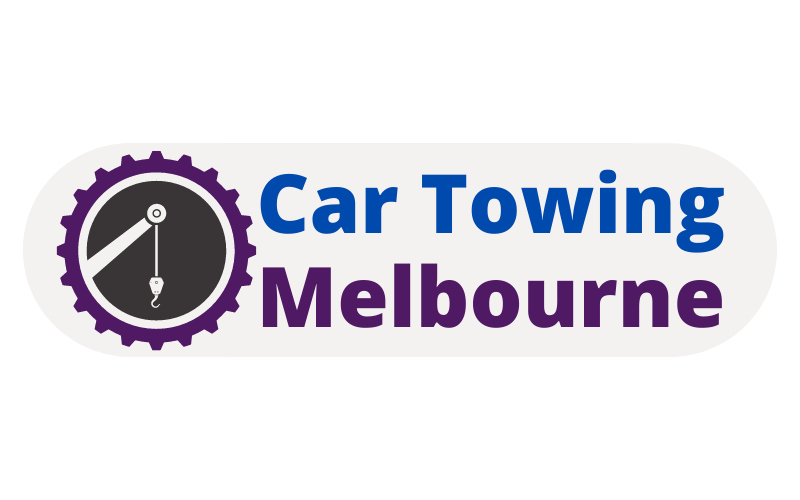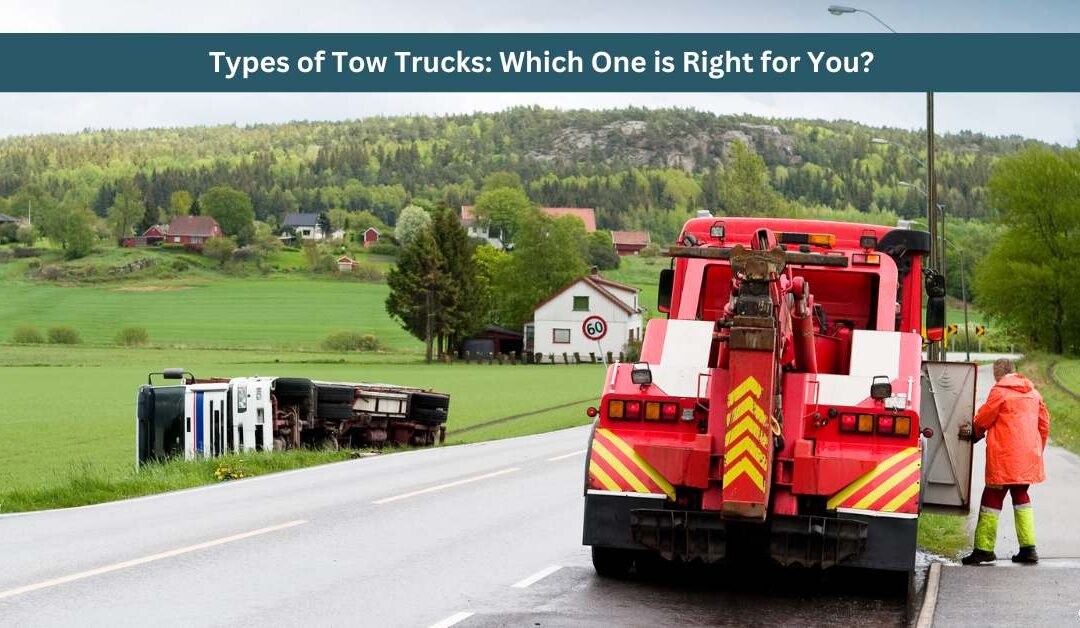When your vehicle needs to be towed, choosing the right type of tow truck is essential for ensuring safe and efficient transport. Tow trucks come in various designs, each suited for specific situations and vehicle types. Understanding the differences between these tow trucks can help you make an informed decision when calling for towing assistance. Here’s a breakdown of the most common types of tow trucks and which one might be the best fit for your needs.
1. Flatbed Tow Trucks
Flatbed tow trucks, also known as rollback trucks, are among the most popular and versatile towing vehicles. They feature a long, flat platform (the “bed”) on the back, which can be hydraulically inclined to allow a vehicle to be driven or winched onto the bed. Once the vehicle is secured, the bed is lowered back to a flat position, and the vehicle is fully off the ground during transport.
Best For:
Vehicles with severe damage or those that are not driveable.
Luxury, classic, or low-clearance cars to avoid damage during towing.
Transporting motorcycles, SUVs, or small trucks.
Advantages:
Offers the highest level of protection for the towed vehicle.
Reduces the risk of further damage by keeping the vehicle entirely off the road.
Versatile enough for a wide range of vehicles and accident recoveries.
2. Hook and Chain Tow Trucks
The hook and chain tow truck is one of the oldest and simplest towing designs. It uses a heavy-duty chain attached to a hook that secures the vehicle by its axle or frame. The front wheels of the towed vehicle are lifted off the ground while the rear wheels remain on the road during transport.
Best For:
Damaged or totaled vehicles that are being towed for scrap.
Vehicles where further cosmetic damage is not a concern.
Advantages:
Cost-effective for towing severely damaged cars.
Simple design and easy to use for quick recoveries.
Disadvantages:
High risk of damage to the vehicle, particularly the bumper, frame, and undercarriage.
Not suitable for 4WD, AWD, or vehicles that require all wheels to be off the ground.
3. Wheel-Lift Tow Trucks
A wheel-lift tow truck is a more modern and less damaging version of the hook and chain truck. Instead of chains, it uses a metal yoke that hooks under the front or rear wheels of the vehicle. The yoke lifts the wheels off the ground, with the other set of wheels remaining on the road. This type of truck is often used for quick and simple towing, like removing illegally parked vehicles.
Best For:
Towing small to mid-sized cars over short distances.
Quick recoveries, such as moving cars from parking lots.
Advantages:
Causes less damage to the vehicle compared to hook and chain trucks.
Affordable and efficient for short towing jobs.
Easy to maneuver in tight spaces, making it ideal for urban areas.
Disadvantages:
Not ideal for long-distance towing.
Not suitable for all-wheel-drive or 4WD vehicles as it can damage the drivetrain.
4. Integrated Tow Trucks (Boom Trucks)
Integrated tow trucks, also known as boom trucks, are equipped with both a hydraulic boom and a wheel-lift system. The boom allows the truck to recover vehicles from difficult situations, such as when a car is stuck in a ditch or off the road. The wheel-lift component can be used for standard towing. Integrated tow trucks are often used by commercial towing companies because of their versatility.
Best For:
Recovering vehicles from tough spots (e.g., ditches, embankments, or tight parking spaces).
Towing medium and heavy-duty vehicles.
Advantages:
Versatile for both emergency recoveries and regular towing.
Can handle larger vehicles and trucks due to its powerful hydraulic system.
Ideal for accident recoveries where vehicles need to be lifted from unusual positions.
Disadvantages:
Larger and bulkier, making it harder to maneuver in tight spaces.
Typically more expensive for both the towing company and the customer.
5. Heavy-Duty Tow Trucks
Heavy-duty tow trucks are designed to tow large vehicles like buses, commercial trucks, or RVs. These trucks are equipped with powerful hydraulic systems, extra-strong winches, and reinforced frames to handle the heaviest loads. Heavy-duty trucks are often used for towing vehicles involved in serious accidents or breakdowns on highways.
Best For:
Towing large commercial vehicles, buses, or construction equipment.
Recovering oversized vehicles after accidents or breakdowns.
Advantages:
Capable of handling the largest and heaviest vehicles on the road.
Powerful enough to perform recoveries in challenging conditions.
Disadvantages:
Not suitable for smaller vehicles, as the equipment is too large and powerful.
Higher towing costs due to the specialized nature of the service.
6. Rotator Tow Trucks
Rotator tow trucks are heavy-duty tow trucks with an added feature: a rotating boom. This rotating arm allows the truck to recover vehicles in tricky situations, such as vehicles overturned in accidents or those stuck in tight or hard-to-reach spaces. Rotator tow trucks are typically used for large-scale recoveries or complex accident scenes.
Best For:
Large vehicles in difficult-to-access areas.
Vehicles involved in major accidents that require complex recovery methods.
Advantages:
Versatility in recovering vehicles from virtually any angle or position.
Ideal for heavy-duty towing and large vehicle recoveries.
Can rotate 360 degrees, making it perfect for challenging rescue operations.
Disadvantages:
More expensive due to the complexity of the equipment.
Requires highly trained operators, often increasing service costs.
Conclusion
Choosing the right tow truck depends on your vehicle type, the nature of the breakdown or accident, and your specific needs. Flatbed trucks are ideal for protecting your car during transport, while wheel-lift trucks are great for quick tows. For larger or commercial vehicles, heavy-duty or rotator tow trucks are the best options. Understanding the differences between these types of tow trucks will help you make an informed decision and ensure your vehicle is transported safely and efficiently.
Now Car Towing Melbourne is available in Docklands VIC 3008, Australia.
Car Towing Melbourne
(03) 7037 7625

